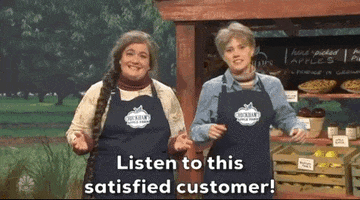Mark Hunter's Blog, page 19
July 6, 2022
How to Accelerate Second Half Selling
Just kidding! Time to figure out the game plan for the second half.
Regardless of whether you made your first half number or missed it, here are 6 things that you need to do right now for a successful second half of the year.
1. Set your calendarThis is not just for the summer months, but for year end in particular. What you’re looking at is when does the end of your customer’s year occur?
For many of you, this means once we get to about the second or third week in November, things pretty much shut down. That means you’ve got six fewer weeks in the second half of the year than you did in the first half!
Whether your customer’s year ends in November or December, here’s the whole deal: I see too many salespeople take the number that they need and they divide it by six and they go out and get it. But it doesn’t work, because they run out of time.
Instead, you have to over accelerate in the second half.

via GIPHY2. Land and expand
This is about looking at all of your existing customers, all of the customers that you landed in the first half. Where can you come back and expand?
How can you upsell them? How could you cross-sell them?
What’s the additional level of business that you can get from these customers?

via DASDING on GIPHY3. Lower third pipeline
You have the top of the pipeline. These are unqualified prospects.
Then you have that middle third which has potential, but they’re still a long ways out.
And then there’s that lower third. These are the ones that you probably wanted to get last month, but you weren’t able to get.
Don’t lose sight of that.
I’ve got one of those. For instance, it was an account that I was really hoping to close in the month of June. It didn’t happen, but guess what? I’m zeroed in on it because I want to close it early in July.
This is another piece of business for you to be looking at, and this goes into your second half number!
4. Big opportunitiesRead these 10 Tips to Fill Your Prospecting Pipeline
These are those accounts that are going to take several months to close. It’s going to take a lot more than a few calls. I better identify them, and have them on my radar.
There are probably some that you were working on in the first half of the year. Don’t lose sight of these, as they run the risk of slipping at the end of the year because they’re big opportunities for the customer too.
Oftentimes what happens is the customer says, “You know, why don’t we talk about this after the first year?” Right there, you’ll lose that business. Make sure you’re zeroed in on those big opportunities right now.

via SA Company on GIPHY5. Existing customer issues
Look at your existing level of business. Of course, there’s repeat business that you’re going to get and so forth, which is great. But pay attention to issues that could put some of those customers at risk.
In other words, I need to be prepared that I may be expecting X amount from existing customers, but I may only wind up with Y. And I’ll end up asking myself, why did that occur? Instead, identify that ahead of time.
6. Level of prospectingRead more for How to Be Seen as an Expert by Your Cstomers
When I go through and look at my land and expand, my lower third pipeline, my big opportunities, my existing customer issues, then I begin to understand what’s going to be the level of prospecting required.
How much of my number in the second half is going to come from people who aren’t even on my radar screen right now?
I may be mentioning this last, but it does not mean prospecting comes last. What’s more, it’s important to identify what that realistic number is that you have to plug in. As you build your number out, always go to 110 or 120%. You decide how much over, but you’ve got to get beyond.
In fact, I work with a lot of sales teams that decide, “I want to have a 3X or a 4X pipeline.” In other words, if I expect to do X in the second half of the year, I better have four times X in my pipeline because I know that only about 25% actually winds up closing.
Watch this episode of The Sales Hunter Podcast for more on metrics worth measuring with Colleen Francis.
When you build your plan, don’t forget to account for slippage!
This week on The Sales Hunter Podcast…

Join us this Thursday for How to Have a Relationship Mindset with guest, Sam Richter.
Sam is the master of finding information online and using it for sales success. Listen in as Sam and Mark teach how to do your homework so you can cultivate a relationship with your customer.
Listen wherever you stream podcasts.
Copyright 2022, Mark Hunter “The Sales Hunter” Sales Motivation Blog. Mark Hunter is the author of A Mind for Sales and High-Profit Prospecting: Powerful Strategies to Find the Best Leads and Drive Breakthrough Sales Results.
The post How to Accelerate Second Half Selling first appeared on The Sales Hunter.
June 29, 2022
How to Defeat the Competition You Can’t See
This is about the competitor you can’t see, and yet is out there on every deal that you’re trying to get. The competitor you can’t see is ‘no decision’.
It’s not that they’re not buying from you because they’ll buy from somebody else, or that they’re going to stay with who they’re buying from now. They have simply chosen to not make a decision.
Let me help prevent you from becoming victim to no decision.
1. ConfidenceI’m not talking about your confidence, I’m talking about your customer’s confidence in you.
So many times when I go back and I analyze why deals didn’t happen, it’s because the customer never had confidence in the salesperson and the company they represent. I see this in every industry I work in.
If I don’t first create confidence, why in the world would a customer choose to buy from me? They’re not going to. So my focus has to be on first, creating confidence where they can see that I can provide them with an idea and I can help them understand what the problem is.
2. SolutionRead more about 6 Things Customers Need Before They Buy.
I have to be able to help the customer see that this is a solution and their problem is solvable. Sales is about helping others see and achieve what they didn’t think was possible. If I can’t help you do that, I didn’t do my job.
I’ve got to be able to have a deep enough conversation with you to be able to gain insight and subsequently help you understand your unique solution. Because if I don’t get deep enough (through confidence) with you in terms of understanding what the solution is, guess what? Chances are you’re going to wind up making no decision.

via The Tonight Show Starring Jimmy Fallon on GIPHY
3. Value
Value is not price.
I need to create a workable plan that’s going to help you address the issue that needs to be taken care of. It could be a pain, a gain or an optimizer. You may be protecting the downside. But the value proposition is about showing the customer that this is the right way to go.
Careful! I can’t put a value prop on the table that you’re going to understand unless I first have created confidence and second, crafted a solution.
4. Urgency
This undermines more deals than anything else, or I should say, the lack of urgency.
The customer may have a problem. They like your solution, but if they don’t have urgency to solve it they’re not going to do anything about it. It isn’t good enough for me to present a value proposition that makes sense. I have to frame it around urgency, because if I don’t have urgency, guess what? No decision wins the day.
We have some significant upgrades that we’re going to be making in my own company. And I’ve had salespeople put out great, very viable value propositions that address the solution and I’ve got confidence in them. But there’s not the urgency to be able to close them. Now, the reason there’s not the urgency to close them is because I have other things that are higher priorities.
If I can’t crack this code in terms of urgency, it’s not going to happen.

via GIPHY
5. Simplicity
What ultimately happens is the customer says, “I’m not going to make a decision because it’s too complicated.”
I was on the phone today with a sales team chasing a deal with a Fortune 25 company. This is one of the biggest companies in the world. It’s a big deal, but they’re not getting anywhere. They’re not getting the answers that they want. And the reason is because the solution is so big and the value proposition is so complex.
The value proposition is so complex that it overpowers the urgency.

via GIPHY
There’s a direct correlation here between urgency and simplicity. If your value proposition is urgent, but it’s not a simple solution, they can still sit there and say no. So I have to make sure I have a very simple solution.
This week on The Sales Hunter Podcast…

What’s the difference between being seen as a spammer versus a resource on LinkedIn?
How do great conversations really get started on LinkedIn?
Join the LinkedIn Whisperer, Brynne Tillman in this week’s episode of The Sales Hunter Podcast as she shares truth and tips with Mark about sales success on the LinkedIn platform.
Have you been a secret fan of The Sales Hunter Podcast? It’s time to review and let your voice be heard!
Copyright 2022, Mark Hunter “The Sales Hunter” Sales Motivation Blog. Mark Hunter is the author of A Mind for Sales and High-Profit Prospecting: Powerful Strategies to Find the Best Leads and Drive Breakthrough Sales Results.
The post How to Defeat the Competition You Can’t See first appeared on The Sales Hunter.
June 22, 2022
7 Pricing Rules to Close More Deals
Just because the customer asks for your price, doesn’t mean you have to deliver it right then and there.
In fact, there are a few reasons why you definitely shouldn’t lead with the price.
I want to talk to you about 7 rules for how to present your price so that you’re not shot down from the get-go, or challenged by objections either.
1. Do your due diligence.You never put a price out in front of a customer until you have first understood three things:
One, what’s the critical need they’re trying to address? Is it a pain, is it a gain, is it a problem, is it an opportunity? What is it?
Two, are you dealing with the decision-maker?
And three, are they going to make a decision right now?
This is absolutely critical. Without the answers to these questions, it’s the blind leading the blind.
2. Make your offer personalRead these 5 Tips to Never Discount Your Price Again.
One of the biggest issues that I find in this remote work environment is that too many prices are being delivered via email.
When you send your price out by way of email, you have now given your customer the opportunity to take your price and to shop it with everyone else out there. Because now, your price is in writing, so they can go to their current supplier, or to somebody else and use it against you.

via Paramount Movies on GIPHY
The other thing is this; it’s so easy for the customer to just immediately respond and say, “Your price is too high.”
Instead, I want to deliver my price face to face. Now, you can’t always do that, right?
I understand that, but you can say, “Hey, there are a few things in this price piece that I need you to really understand, so I’m going to send it to you, but we need to have a conversation about it. How’s your calendar at 4:00 today?”
And at 3:59, that’s when you push send to then email that document—and immediately thereafter you have a conversation with them. And when you send it, you send it as a PDF. I’m never going to send it to them as a word document or an email because they can change it.
It’s got to be a PDF, but there have to be legs attached to it. That’s because if you don’t deliver your price personally, you run the risk of it being shot down.
3. Your price must be time sensitive.
Every price offer has to have a deadline attached to it. Now, does that mean after that date the price goes up? No, you can make an exception all you want. However, you’re trying to drive a decision.
Otherwise, you put a price point out there and then they don’t do anything. A year later, they come back to you and say, “Hey, this is the same price I want to pay.“
Choose an expiration date anywhere from three days to 14 days, depending on the industry, and depending on what it is that you’re selling.

via Perecz Annabella on GIPHY
4. Your offer and the outcome go together.
Never just present the offer. Always wrap it around the outcome that the customer’s looking for.
What was the big deal that the customer was looking to solve based on our conversation, and the issues they have, and the risks their company will be going through? Well, this is the solution we recommend to address all that.
You put the offer on the table, but wrap it around what it is, because there has to be a reference point.
5. Use the power of contrast.
I recommend you present the package two ways. You present the package first with a high priced offer. You give them the ultimate package–the one that’s got everything in it
Next step, let them vomit all over because it’s so expensive. That’s okay.

via GIPHY
You say, “Fine, I’ve got another option for you,” and you put the second proposal on the table. You share the plan that really is what you feel is right for them. They’re going to look at that price and compare that to the first, higher priced offer.
“Wow, this is a bargain.” Actually, it’s called the power of contrast.
The power of contrast is so beautiful because if you had just put that second offer on the table, and not given them the ultimate package at the beginning, they would have said, “Oh, that’s too high. I need you to reduce that price more.” But because you give them the ultimate offer first that becomes the anchor point.
Now you’ve anchored the proposal around the solution they’re looking for, and you’ve anchored it around a higher price. Suddenly, it becomes much more acceptable to them. It’s about helping the customer to make a decision.
6. Present with confidence, and believe in your price.
The words you say are only half the battle. Eye contact, body language and a firm voice can make or break your price presentation.
I had a buyer tell me one time, “I can always tell when there’s a discount to be had because if the salesperson can’t deliver the price with a firm voice, eye contact and body language, I know there’s a discount to be had.”
More discounts are given because the salesperson fails to believe in the price than are giving it based on the demands of the customer. Believe in the price because of the solutions and the outcomes you can provide.

via The New Celebrity Apprentice on GIPHY7. Be careful to stay in your lane.
It’s all the value you create, but for the right customer base.
That’s the reason people go into Starbucks and pay $6, $7, $8 for a cup of coffee. It’s the perception of the value they receive, but that same person would not walk into a McDonald’s and pay $6 for a coffee. Nope. It’s a different customer.
Sell to your customer base, not someone else’s customer base. Stay in your lane. And if you aren’t part of your customer base, you’ll never be able to sell to it.
This week on The Sales Hunter Podcast…

Tune in Thursday morning for a new episode with Mark Hunter, The Sales Hunter.
This week’s topic: How Do I Know If I Have Good Prospects?
Are you chasing suspects or prospects? Listen wherever you stream podcasts.
The post 7 Pricing Rules to Close More Deals first appeared on The Sales Hunter.
June 15, 2022
6 Things Customers Need Before They Buy
What you sell does not matter as much as you think it does.
When I ask salespeople, “What is it that you sell?” I’m quick to hear some, “Oh, I sell this type of system or this type of computer, or these services…” That’s nice, but that’s not what people want.
If you’re going to move your customer from qualified to closed, you’re going to need these 6 things first.
1. Solutions to their problemsHere’s a little bit of a dilemma we have. One, customers think they know what they need. However, they don’t really know what they need because they don’t know exactly what their problem is.
This is where you come in. In fact, this is a big part of what you sell. Because what you sell is solutions–you’re selling outcomes.
2. Insight into their challenge.Read more about What Prospects Want to Hear.
What you sell is really irrelevant, it’s just to get the conversation going.
Let me give you an example. You see, what I sell may help me get the conversation going. So in other words, it may help me get the meeting, but it does not get me the sale–unless that’s exactly what the customer is looking for.
Nevertheless, what the customer’s looking for may not be what they need. It’s my duty, and my responsibility as a salesperson, to come in and have that conversation with them, and get them to fully share what their challenge is.
I want to uncover more deeply both their challenge and their opportunity.
3. Understanding of their needs
So many times the customer goes out and buys something that they don’t really need.
All you have to do is go to any store and notice the vast number of returns that occur because what they ordered isn’t quite what they wanted.
The role of the salesperson is to help you see and achieve what they didn’t think was possible. But in order to help you see and achieve what you didn’t think was possible, I (the salesperson), first have to understand your needs.

via Hop To It Productions on GIPHY4. Trust
I’m not going to be able to understand your needs unless you trust me enough to tell me what your issues are. You see, what you really sell is trust.
You thought you sold widgets! Or this piece of machinery. But what you sell is trust.
Because when you sell trust, the customer is now confident with you enough to open up. This is a much bigger issue than people realize. Some might think trust is almost secondary. Absolutely not.
Trust is the cornerstone of the decision that’s being made because of the value proposition, and the price that comes from the value proposition.
5. ExpertiseRead more about The Relationship Between Sales and Trust.
If I have a medical condition that requires surgery, and I go to a specialist, I’m going to believe them. I’m going to buy in.
However, if I go to a general practitioner, they might be a great doctor, but what I really need is a specialist. The more specialized we become, the more trustworthy.
You see, what I am saying here is that the level of trust is directly linked to your level of expertise. Ask yourself, do I create expertise with my customers?
6. Confidence in YOU
You are selling expertise and trust to create a level of confidence in the mind of the customer.
Confidence in you leads them to believe the value proposition you have put in front of them, and therefore justify the price. You want them to invest in the outcome you’ve created for them. In a way, they’re indirectly investing in you.

via Amazon Prime Video on GIPHY
 I want you to learn how you can become the best salesperson out there. Not to sell the widgets, not to sell the machinery, but to sell expertise and trust.
I want you to learn how you can become the best salesperson out there. Not to sell the widgets, not to sell the machinery, but to sell expertise and trust.
A great place to hone your sales skills is at The Sales Hunter University.
While these blog posts cover general topics, each masterclass at TSHU does a deep dive into the nitty-gritty details. It’s on-demand sales training that you can actually use in your day-to-day.
Where can you grow today? See opportunities here.
This week on The Sales Hunter Podcast….
 Salespeople are often afraid to ask for a referral. They think they’ll come off as too pushy or too needy. So they don’t.
Salespeople are often afraid to ask for a referral. They think they’ll come off as too pushy or too needy. So they don’t. Huge missed opportunity!!
Join Mark for this episode of The Sales Hunter Podcast as he welcomes Bill Cates, an expert on all things referrals.
Want to know when to ask, and exactly how to do it in a way that feels authentic? Listen Thursday morning when this episode goes LIVE!
Available wherever you stream your podcasts.
The post 6 Things Customers Need Before They Buy first appeared on The Sales Hunter.
June 8, 2022
10 Reasons Why I Love Sales More Than Ever
I’ve been in sales for over 30 years and I love it now more than ever.
That definitely wasn’t my attitude when I started out. So why do I love it so much, and now even more than before?
Let me walk you through 10 things I love about sales–which ones resonate with you?
1. Helping people achieve thingsMy definition of sales is helping others see and achieve what they didn’t think was possible.
That’s what I love about sales.I get to help others make the impossible, possible. And I get to do that every day.
2. Meeting new peopleIt’s crazy, but when I’m prospecting, when I’m on the phone with people, when I get together with people in person, I’m always meeting new people.
That makes me excited, because I love people. Salespeople (should) love people. That’s why they’re in sales.

via The Late Show With Stephen Colbert on GIPHY3. Learning new things
This morning, I was on the call with a potential customer and they were sharing with me about their industry, and I couldn’t help but think what I did was right. When I hung up the phone with them, I had research to do. I googled to find more information about their industry.
I’m continuously learning new things. Of course, it’s great for my intellect, but it also helps my customers because I become more knowledgeable. And the more knowledgeable I become, the more they respect me, my expertise, and the more they want to do work with me.

via Parks and Recreation on GIPHY4. Understanding human behavior.
People come in all shapes, sizes and walks of life. They do all kinds of crazy different things.
But what I like about sales is understanding human behavior. Because there are times when I call people or connect with people and they don’t want to talk to me, and they may sound off to me in one way or another. On the other hand, there could be somebody who I am totally engaged with.
But what does that do? I believe it helps me be better. I can learn something from every human interaction, and as salespeople we have a lot of them. When something works with a customer, or totally flops, I can take that and apply it to my next conversation.
5. Challenges each dayRead these 7 Things Prospects Want to Hear
Right now, I’m in the midst of several challenges trying to figure out how I can make these solutions work for clients.
It’s like a jigsaw puzzle, and I get to put it together. I get to work on it every day.
Does every challenge work out right? No, but you know what? Every challenge I work on, I get to learn from. That’s absolutely huge.
6. Observable resultsThere aren’t many professions in which you can see exactly how you’re doing, and the impact you’re having.
Did the customer buy from you, or not? Did the customer do what you told them to do, or not?
For so many jobs, you go through the mundane activity and you never really know if you’re making a difference. Not this job! In sales you get to see your results.
7. My future in my handsI control my destiny. Sales can happen anywhere.
I was just talking on the phone with a salesperson who used to live in Nashville and then a couple years ago with the pandemic, he said, “Forget it, I got tired of Nashville.” They moved an hour out of town to a farm and they love it.
You see, I get to make key decisions for my life, for my career. Recently, I moved from Omaha, Nebraska to Dallas, Texas. I get to control my destiny because so much of what we get to do is remote, and that’s wonderful.

via Jim Carrey on GIPHY8. Adrenaline rush
You know what’s funny? We all like a little level of stress. We really do. I confess, I like it when the pressure’s on.
“…I have to get this deal in by the end of the day.”
Today I’m in the midst of a number of deadlines and I’ve got to stay on task. But then when I get done with it I think, “Hey, that was cool. I succeeded.”
9. The financial rewards
Let’s talk about money!
Depending on the position you’re in and what you do, there’s an unlimited amount of money you can earn. And that’s what’s cool because I see salespeople making $30,000 a year and other salespeople making $300,000 a year. Some salespeople are making $100,000 a year, and other salespeople a million dollars a year.
The financial rewards are excellent.

via Andy Kassier on GIPHY10. It sure beats doing anything else!
Over the years, I’ve had plenty of opportunities to leave, but I’ve always wanted to stay in sales because you know what? It beats doing anything else.
 A little confidence in yourself as a salesperson can go a long way in building satisfaction and fulfillment in your sales career.
A little confidence in yourself as a salesperson can go a long way in building satisfaction and fulfillment in your sales career. I invite you to check out The Sales Hunter University. Get a confidence boost by taking a Masterclass to sharpen those sales skills.
What about Phone Prospecting? Pricing? Or Email Prospecting?
Or maybe you want it all, as well as closer contact with me through office hours and live coaching each month. That makes All Access Membership to TSHU a great fit. Get access to all masterclasses, and each new future course! Click here for more info.
This week on The Sales Hunter Podcast… Customers don’t want to be sold, but guess what? They don’t really want to buy either.
Customers don’t want to be sold, but guess what? They don’t really want to buy either.Mark shares his best practices for presenting your price without discounting.
Are you breaking some of these pricing rules? Better safe than sorry–you’ve got to listen to this episode!
Search The Sales Hunter Podcast wherever you listen to podcasts, and subscribe today! New episodes drop every Thursday morning.
The post 10 Reasons Why I Love Sales More Than Ever first appeared on The Sales Hunter.
June 1, 2022
10 Best Practices to Sell in the Summer
It’s normal to get a little pushback on prospecting during the summer months due to vacations, holidays, et cetera. Once you get deep into the summer, some customers want to kick meetings into the fall. Whoa, big risk.
Let me walk you through 10 things to help maximize summer selling.
1. Short timelinesYou have to make your timelines very short in terms of your cadence, or follow-up strategies. This also applies to when you set the meeting.
For example, when you call somebody up and they don’t have time to talk right now I recommend saying, “How about 2:00 this afternoon, 10:00 tomorrow morning?”
Don’t shoot for, “What’s your calendar look like next week?” You’ve got to grab the same day or the next day.
2. Keep it simpleRead these 15 Dos and Dont’s for a Profitable Sales Process!
If you’re selling something complex, you’ve got to break it down into the simplest of terms right now. The key is to keep the ball moving forward.
If it’s too complex, they’re going to make excuses. “Well, he’s on vacation… they’re on vacation. We can’t get things set up. So let’s just take a look at it in a couple months.”
That does not cut it. You’ve got to be short and quick. So keep it simple. Sell in the first piece, then sell in the next piece.

via CBS on GIPHY3. Friday is for closing
Yes. I love Fridays, especially Friday afternoons. I love them for selling and especially in the summer. You get to close more deals on Fridays because people want to get this off their plate before the weekend.
Sure, a lot of people are out Friday afternoons, and yet a lot of people are just a little more laid back. In fact, I get more senior level conversations during this time window! It’s true, I’m calling people at mid and higher level in organizations and get great conversations.
It’s also the time to be closing. You don’t want to allow a deal that is kind of hanging by a thread to sit there. “I’ll get to it next week.” could be that deal’s death sentence. You don’t know what’s going to happen from a vacation standpoint and everything else, so why not get it done on Friday?
4. Smaller meetingsI don’t recommend trying to get everybody on the call together.
Inevitably, somebody’s going to be on vacation. Somebody’s going to be out. Then again, you’re handing them an excuse.
Instead, keep the meeting small.
5. Activity countsIt’s easy to sit there and become frustrated in the summer as your motivation wanes.
The summer months are when I really count the activity. Count the number of phone calls I make and number of emails I’m sending out, the number of conversations I’m having. Activity really counts.
This is great to do with a partner. If you have someone you can be accountable to, challenge each other, and focus on your activities right now. Make a game out of it, even!
It’s a number game in the summer. I hate talking numbers. I hate saying that, but I’ll tell you what, it can make a big difference in your motivation.

via Billions on GIPHY6. Networking
Remember, people are a little more laid back, so I can have lunches, and breakfast and coffee with people who I don’t normally get during the year.
So I’m always working a networking list–these are people who I stay in contact with every year. Those hard to pin down individuals might just meet with you in the summer!
Reach out to some of those people that you don’t normally talk to.

via Amazon Prime Video on GIPHY7. Inbound hustle
What’s inbound hustle? You get a lead that comes in the summer, you have got to jump on it within 30 minutes. Within 30 minutes, if not 10 minutes and I’m dead serious on this.
With regards to inbound leads, remember, there’s a reason the customer has interest. You want to service that interest, and fast. If you wait too long, guess what? Just like the rest of the year, people get caught up in other things and then it’s no longer a priority. But especially in the summer because there are so many distractions for our time.
8. Time blockingTime blocking is more important than ever because it’s got to keep you focused.
It’s easy to get distracted by a beautiful day. If there’s nothing on your calendar, it’s easy to say, “It’s kind of a nice day. I think I’m going to go golf 18 holes. It’s not on my calendar….but…”
Oops, there went your afternoon.
9. Vary your hoursRead more for 6 Ways Great Salespeople Master Their Time.
If you’re prone to outdoor activities, wonderful. That means maybe you normally start your day at 7:00. During the summer months, start your day at 6:00 AM. You just need crank it up earlier.
Here’s what I’ve found. It’s amazing the number of people who actually do that, who I can be reaching out to at 7:00 AM. I call people at 7:00 in the morning and have some great conversations because again, I’m varying my hours.
You might consider starting your workday earlier because there may be one afternoon a week where I kind of knock off at two o’clock. That’s okay. That’s varying your hours to take advantage of the summer months.

via Working Title on GIPHY10. Your mindset
This is why I wrote the book A Mind For Sales. Your mindset is as important as ever.
It’s easy to become a little bit distracted, and frustrated, and unmotivated in the summer months. Distracted because there’s so many things you could be doing outdoors. A little frustrated because you’re just not getting the responses you want . So as a result, you become unmotivated.
Don’t get stuck there! There’s a tremendous number of decisions to be made. And an even more tremendous number of activity that needs to happen. You’ve got to be a part of it.
This week on The Sales Hunter Podcast…Consider adding A Mind for Sales to your summer reading list, and get your mindset in the right place this summer so you can attack the rest of the year with confidence and integrity.

Stu Heinecke and Mark Hunter dive into botany this week, as they discover lessons we can learn from weeds.
How can you grow your sales and your career as ruthlessly and effectively as those pesky weeds in your yard?
Tune in Thursday morning to learn how on The Sales Hunter Podcast.
Copyright 2022, Mark Hunter “The Sales Hunter” Sales Motivation Blog. Mark Hunter is the author of A Mind for Sales and High-Profit Prospecting: Powerful Strategies to Find the Best Leads and Drive Breakthrough Sales Results.
The post 10 Best Practices to Sell in the Summer first appeared on The Sales Hunter.
May 25, 2022
How to Create More Time for Selling
Perhaps a better, albeit obvious question: Would more time for selling make you more money? (Of course it would!)
I want to help you have more time for what really generates money for you: selling.
Having a great process, but not enough time to execute it properly, is not a recipe for success. It’s a recipe for frustration.
I challenge you to read these 5 time management tips, and then implement them this week.
1. Do not multitask.I’m going to pop the bubble right now.
When you multitask, you sell yourself short. You wind up giving multiple things less than your best.

via Warwick Brown on GIPHY
Instead, stay in the moment with what you’re doing. You’re actually going to create more time.
Please, don’t give me the argument, “Mark, I spent a tremendous amount of time in my car. I need to use my driving time for phone calls with customers.”
I understand that. But here’s the situation: you’re sitting there driving, and you’re having a call with a customer. You are not going to be as focused on them as you think you are. And you’re possibly going to cause an accident!
So what’s the alternative? Use the time in your car to be strategizing, or thinking. Use it to be continuously learning, or listening to an audio book. There are other lower-function tasks, that use less of your brain, to match with driving.
But that’s just one example. I see others in the middle of a call with a customer checking emails. Hold it! You’re going to miss key information shared by your customer! Just don’t multitask.

via The Office on GIPHY
2. Break the task down into small segments.
How many times have you had a major proposal that you’ve got to get done? And you know it’s going to take time.
Then you start the cycle of: “I don’t have time to work on it today. I’ll work on it tomorrow. And it keeps getting pushed closer and closer to the deadline when you have to deliver.
It’s time to do something different. Take that big project and break it down into five or six smaller tasks. That way you can focus on one piece at a time. I have found that this single activity has helped me increase my productivity significantly.
3. Allocate time to check goals and priorities.You know I’m a big champion of, “Tomorrow begins today.”
I’m going to look at my goals again and reassess my priorities to make sure they’re in line for tomorrow. But tomorrow morning, I’m going to repeat the process.
Being zeroed in on your goals means making sure that your priorities and the activities you’re going to be doing support your goals.
Having goals is totally irrelevant. Having goals doesn’t mean you achieve your goals. It’s the activities you do that are going to help you achieve your goals. So, I want to make sure that I’m going to spend my time accordingly and appropriately.

via NETFLIX on GIPHY4. Know your peak time.
Everybody’s mind and body just behaves differently. And we all have peak times of the day that are critical work time, and other times when we’re simply not focused. Know when they are.
My peak times, for instance, are early in the morning. Early in the morning is when I can get writing or proposals done. I know my brain is primed and ready for these activities in the morning.
I also know I get a ‘second wind’ later in the morning. That’s when I’m going to be spending time making phone calls and making stuff happen with customers. And I know that late in the afternoon my focus starts to wane, so I’m going to have lower-function activities during that time.
How can you allocate your time accordingly?
5. Know how to create energy.Read 10 more time management strategies for salespeople here.
This isn’t just about going for a run or going to play tennis or lifting weights or whatever. I will routinely do that. I’ll be having a good day, and I’m getting a little lethargic, and I’ll go for a run. And I come back, and I’m jazzed. But I am not always in a position to do that.
However, I can create energy in other ways. One way is by calling some of my customers.
I have a conversation with them, and it jazzes me. It really gets me pumped. It even creates more energy to go make more phone calls or go take care of more work. This is something I do routinely.
For example, on Friday afternoons let’s be honest, we’re tired. You just want to chill and do paperwork and wind things down. Nevertheless, I love calling a couple customers right after lunch. It gets me excited! And then suddenly, boom. I’m in the mood, and I’m going to make those Friday afternoon phone calls. (Yes, Friday afternoon is a great time to be prospecting! Read why here.)

via GIPHY
This week on The Sales Hunter Podcast…..

Jason Bay joins Mark this week to share his 3 Steps to Make Outbound Easier.
He shares why he focuses more on sharing insights instead of on “solution talk” of why you can solve their problem or why you’re better than the competition.
What if instead you left the client with something of value every time even if they never buy from you?
Is it really that simple? Listen to the conversation wherever you get your podcasts.
 Now that you’re on your way to making more time for actual selling, it’s time to refine those sales skills!
Now that you’re on your way to making more time for actual selling, it’s time to refine those sales skills!Do you feel awkward on the phone? Not seeing results after calling customers?
Check out my Phone Prospecting course. It’s time to warm up that cold call!
Do your emails feel cheesy? Do they often go unanswered?
Check out my Email Prospecting course. I’ve even included email examples!
There’s so much more to learn and explore at The Sales Hunter University. Click here to find even more masterclasses, or learn about our levels of membership.
Copyright 2022, Mark Hunter “The Sales Hunter” Sales Motivation Blog. Mark Hunter is the author of A Mind for Sales and High-Profit Prospecting: Powerful Strategies to Find the Best Leads and Drive Breakthrough Sales Results.
The post How to Create More Time for Selling first appeared on The Sales Hunter.
May 18, 2022
5 Ways to Improve Your Sales Skills
Wherever you’re at on the totem pole, I’d bet there’s room for improvement. Do you want to get to the top?
If you’re looking to grow your career in sales by any measure, these 5 areas will help get you to that next level. Keep reading, then let’s get to work.
1. Have a peer network.Your network may not be people in your office, they may even be people all over the country, but have a peer network of top performers that you connect with on a regular basis. Why? One very simple reason: it helps up your game to the next level.

via Apple Music on GIPHY
When you connect with top performing people, there’s an amazing exchange of ideas and energy as a result of those conversations.
I found myself in that very situation just the other day. I spent the day with somebody in my peer network and we were discussing various customers and opportunities. We came out of it with some very powerful solutions that I’ve already had a chance to play out—and they have worked!
You see, a peer network allows you to share ideas, gain knowledge, plus the connections you create, as well as the opportunities, are invaluable.
2. Continuous learningRead more for 7 Ways to Upgrade Your Network
Top performers know that if they don’t continuously change, others will catch up with them. Continuous learning is how they always stay ahead.
They’re constantly reading books. I hear from people who say, “Oh, I read five books last year. I read two books last year.” Let me tell you something, I read over 50 books a year. In fact, I probably read close to 100 books a year because I’m interested in acquiring new knowledge.
You have to keep moving yourself forward. From a continuous learning standpoint, I want to encourage you to jump to the next level.
I’m unselfishly going to tell you, that’s why you need to join The Sales Hunter University because Sales Hunter University is about continuous learning. It’s an award-winning program, and focuses on sales skills that contribute to your success. Learn more here!
3. Moonshot thinking.
Go back to the ’60s. President John F. Kennedy put a challenge before the nation to put a man on the moon and return them safely. It was called a moonshot. It was outlandish thinking when he first said that, but we did it before that decade was out, and that was the goal.

Top performing people set audacious goals.
They set big goals, and you know what, they have a way of achieving them. Because if you think small with small goals, you achieve small things. If you think big with big goals, even if you fall short, you’ve still been wildly successful.
Moonshot thinking forces you to think differently, and as a result, you create amazing results.
4. Incredible self-control
Top performers are disciplined with who they are. They don’t sit there and lash out at somebody when somebody tees off on them. It takes discipline when something is said in the community, in the marketplace, on social media, whatever. Salespeople of integrity restrain themselevs.
Why? Because it’s energy wasted if they go chase it. They actually get more done because they don’t emotionally and physically get caught up doing things that aren’t important.
Of course, self-control also lends itself to proper time management, too. Can you sit and complete a task without getting sidetracked? Can you work towards your daily/weekly/monthly goals without chasing shiny objects? If not, it’s time to exercise and strengthen those self-control muscles.

via Lemonerdy on GIPHY5. Focus on the focus
When we focus our thinking, we focus our results.
It’s the same concept as having a vision board. Seeing your goals and dreams regularly keeps them in focus.
But ‘focus on the focus’ isn’t just about the goal. It’s about the activities that will help you achieve the goal. This is the big difference.
You can’t just stop at moonshot thinking. It’s time to discipline yourself to start taking action. The goal is achieved when you accomplish the activities.
 If you’re serious about becoming a top performer, The Sales Hunter University is your one-stop shop.
If you’re serious about becoming a top performer, The Sales Hunter University is your one-stop shop.Take a masterclass on Email Prospecting, Phone Prospecting, or maybe Pricing. (click here to see our full course catalog!)
Or, consider one of the three membership levels for more consistent encouragement, motivation, and knowledge.
Level 3, All Access includes over a dozen Masterclasses, plus each new course added monthly. AND opportunities such as monthly coaching, and office hours with yours truly.
If this blog post has started a fire in you, then you owe it to yourself to discover more. Click here to explore The Sales Hunter University and what it has to offer!
This week on The Sales Hunter Podcast… Join Mark for a special solo episode detailing How Prospecting Changes in the Summer Months.
Join Mark for a special solo episode detailing How Prospecting Changes in the Summer Months.

via Walt Disney Animation Studios on GIPHYThe rules you previously believed about prospecting may not necessarily be true. What steps can you take to be successful this summer, and outsell your competition?
New episodes every Thursday morning! We’d love for you to take a minute and leave us a review wherever you listen to your podcasts.
Copyright 2022, Mark Hunter “The Sales Hunter” Sales Motivation Blog. Mark Hunter is the author of A Mind for Sales and High-Profit Prospecting: Powerful Strategies to Find the Best Leads and Drive Breakthrough Sales Results.
The post 5 Ways to Improve Your Sales Skills first appeared on The Sales Hunter.
May 11, 2022
15 Dos and Don’ts of a Profitable Sales Process
Your sales process is a vital element of your success. A process that’s simple, sustainable, and scalable can make you the author of your own fate.
How does your process measure up to these 15 Dos and Don’ts?
Today’s blog brought to you as a sneak peek into the new masterclass: Roadmap to Excellence: How to Become a Top 1% Salesperson. Click here to see the course contents.
1. Don’t depend on your process aloneIf you don’t have a process, nothing else is going to work. BUT just because you have a process, doesn’t mean everything is going to work.
Your sales process is critical, but if you’re not allocating your time right, if you don’t have your mindset in the right place, if you don’t have a strong network, or practice accountability–if you don’t have the other four elements, you can’t be successful.
In fact, top performing salespeople have a process that is really much simpler than people realize.
Read more about 8 Characteristics of a Top-Performing Salesperson.
2. Don’t overcomplicate it.If you’re looking for this perfect thing that’s going to help you be successful, don’t. What you don’t realize is that the perfect thing is you. This is why all five elements are important.
Average salespeople have a process that just gets bogged down. Why? Because it’s just too complicated.
I was with a company recently, and they must have had 25-30 steps in their sales process. And I thought, “Really? You’ve got to be kidding me. I want it to only be a few steps.”
Top performing salespeople have a far simpler sales process.
3. Do make it sustainable.Your process has to be one that you can repeat over and over and over again. This is what I find about top performing salespeople–they can repeat the same activity thousands of times, and it just works.
Truly, they’re so confident with it that they can do it in their sleep. But what’s the benefit of that? Well, it keeps them on track.

via VisualTimmy on GIPHY4. Do make it scalable.
A great process is also scalable, because it means that I can scale this to bigger and bigger and bigger opportunities. Therefore, if this is a process that works for this size of client, I can now move it up to the food chain and get it for 50% larger clients, or 100% larger clients.
Likewise, if this is what I’m doing 10 hours a week, I can scale it and I can do this 20 hours a week.
5. Do determine why you sellTop salespeople know why customers buy from them.
If you don’t understand why your customers buy from you, I want you to stop and figure that out right now. Better yet, ask your customers why they buy from you.
6. Don’t forget who your ideal customer is.Who’s your perfect customer? I want to make sure that I know why I sell, and who I sell to. As a result, I stay in that tight lane.
I’ve sat in rooms with top performing sales people, and it’s amazing what they’ll say no to. Somebody will be giving out leads and they’ll respond, “Nope, don’t want that. Don’t want that. Don’t want that either.” Because they stay very focused on who their perfect customer is and why they sell.

via The Bachelorette on GIPHY7. Do use multiple messaging methods
They are not so reliant that they only use one–email or social media. No, they can use email, social media, calls, texts etc. They’re very comfortable, and they know expediency works.
8. Don’t be afraid of the telephoneTop performing salespeople are more reliant on the phone than any other level of salesperson. Yes, that’s true.
They know there’s something about talking directly to somebody. So much more can be accomplished in a single conversation than in a slew of emails back and forth.

via GIPHY9. Do ask exact questions
The top 1% are very tight with the questions they ask; the information, the knowledge they’re looking for, what they want to share.
Remember, they know why customers buy from them. And they’re dealing with a very tight ICP, ideal customer profile. So as a result, they know their audience very well. Thus in knowing them well, they know what to ask, and what to look for.
10. Do have a routine.What’s your cadence? Is it every third day? Every fifth? How do you rinse and repeat?
If you have a positive mindset and know you’re targeting the right people, and a need that you can help the client with, this will help you stay absolutely focused.
With a routine in place, problems, or getting no response, aren’t an issue. The best just keep calling, and moving forward.
11. Do create your own leadsExcellent salespeople know that they’re accountable for their own leads.
Sure, they’d take leads from marketing any day. But they know at the end of the day, their best leads are themselves, because they’re going to come from referrals or upselling of existing clients.
12. Don’t dwell on the internetYou can’t take clicks and likes to the bank.
Instead, set times every day or every week to be out on the internet. Other than maybe having to find a piece of information or do something for a specific customer, avoid social media during the workday. Focus on using social media platforms solely for selling.
I’ll admit, it requires a balance. Especially since your reputation arrives before you do, which means a good reputation on the internet is also necessary.
13. Do look at your goals every day.I look at my goals every day and I ask myself, “What am I going to do to move myself closer to them?”
At the end of the day I ask myself, “What did I do today to help move myself closer to those goals?”
You’ve got to be focused and committed to that. Otherwise, it’s just simply going to fall apart for you.

via Big Brother After Dark on GIPHY14. Do sell first, negotiate second.
Top performing salespeople know that if they do everything else right in the sales process, closing becomes very easy. And negotiation actually becomes minimized. That’s why I say you sell first and negotiate second.
If I sell first and get to really know and understand you, guess what? You’re probably less likely to negotiate because there’s a high level of trust.
When you have a solid process and you’ve gone through the other four elements, in particular accountability, you create trust, and with trust comes integrity.
Accountability → Trust → Integrity→That has customers wanting to do business with you.
15. Do get the Roadmap to Excellence Masterclass.If you think for a moment that you can’t see and achieve being a top performer, you’re the person I want to talk to, because I want to get you there.
Right now is when you need to get serious, because you have time.
Through seven videos and a detailed workbook, we’ll take a closer look at Time, Mindset, Network, Accountability, and Sales Process.
By the end of the course, you’ll have a strong foundation on which to build your success. This isn’t something you’ll do, forget, and move on. This is knowledge you’ll want to implement from Day 1–and share with others!
Aren’t you worth the $59 cost? I think you are. Click here for more info and get enrolled today.
 This week on The Sales Hunter Podcast…
This week on The Sales Hunter Podcast…How do we achieve frictionless selling?
And how much is mindset actually involved in our success?
Mark welcomes guest, Gerhard Gschwandtner, to this week’s episode as they discuss everything mindset, how to reframe failure, and in the end achieve more.
New episodes every Thursday morning! Like what you hear? Leave a review wherever you listen to podcasts.

Copyright 2022, Mark Hunter “The Sales Hunter” Sales Motivation Blog. Mark Hunter is the author of A Mind for Sales and High-Profit Prospecting: Powerful Strategies to Find the Best Leads and Drive Breakthrough Sales Results.
The post 15 Dos and Don’ts of a Profitable Sales Process first appeared on The Sales Hunter.
May 4, 2022
3 Groups Salespeople Must Be Accountable To
Accountability in sales often gets overlooked as a key trait of top performers. Perhaps because it causes us to look in the mirror.
However, without accountability, even if you’re at the top, you have little chance of staying there.
Why? I’ve got three groups you should be accountable to, and the reasons why. Accountability goes hand in hand with integrity. So be smart, because your reputation precedes you!
Accountability is Element #4 in my masterclass, Roadmap to Excellence: How to Be a Top 1% Salesperson, available now!
1. Your customersThis answer seems too obvious, but keep reading!
Our customers indirectly challenge us to gather fresh insights and ideas so that we stay relevant and continuously bring value.
Customers want and need someone who knows more than they do. While they might be making these purchasing decisions once every five, seven, or ten years, you’re doing this day in and day out.
Nevertheless, it’s your responsibility to stay up-to-date, educate yourself, and become a subject matter expert in your field.
Wouldn’t it be amazing if your customers looked forward to your calls because of the value you offer? Accountability means you strive to be that kind of professional.

via Saturday Night Live on GIPHY2. Those in your ecosystem
This means your peers, your coworkers, the people who support you, the people you report to.
If you fail to be accountable to them, why should they help you? Why should they serve you?
Without accountability to help others, or treat them the way they should be treated, why should they even think about doing the same to you?
You can be a top performer and go out and sell, but you’ll never sustain it without accountability. Sure, go out and sell, but you’ll never be able to scale it either.
Not happy with your current ecosystem? Read more about 7 Ways to Upgrade Your Network.
Moreover, accountability is the basis from which referrals and repeat business originate.
In fact, let’s take it even a step further. Accountability is the cornerstone of integrity. You see, if we fail to demonstrate accountability, how in the world can we be seen as having integrity?

via ABC Network on GIPHY3. Yourself
It doesn’t truly start with being accountable to your customers, it starts with being accountable to yourself.
“Top one percenters” are incredibly disciplined. They’re incredibly focused. Their word is as good as gold. Most of all, they keep their commitments to themselves and to others.
Read more about 7 Truths for Mastering Your Mindset.
Excellence is focused around accountability, which breeds discipline and focus. And when you do that, you will be really exhibiting integrity because you’ll be upholding what you believe in, as well as the commitments you’ve made.

via Team Coco on GIPHYLet’s go on a journey to the top…

I’ve put this masterclass together because I want you to become one of the top 1%.
Because here’s the deal: I don’t want you to just sell it. I want you to sustain it and to scale it. I believe that mastering the 5 elements I share in the course will help you do that.
Follow along with the workbook, watch the videos included, and you’ll realize it’s some of the best $59 you’ve ever spent.
Find out more here.
 This week on The Sales Hunter Podcast…
This week on The Sales Hunter Podcast…
What you’re most passionate about and most gifted at is often your distinctive advantage.
So how do you maximize it?
Dave Sanderson, survivor of the ‘Miracle on the Hudson’ plane crash joins Mark for this week’s episode: How Leaders Step Up in Times of Crisis.
Listen Thursday morning anywhere you stream podcasts.
The post 3 Groups Salespeople Must Be Accountable To first appeared on The Sales Hunter.
Mark Hunter's Blog
- Mark Hunter's profile
- 25 followers



